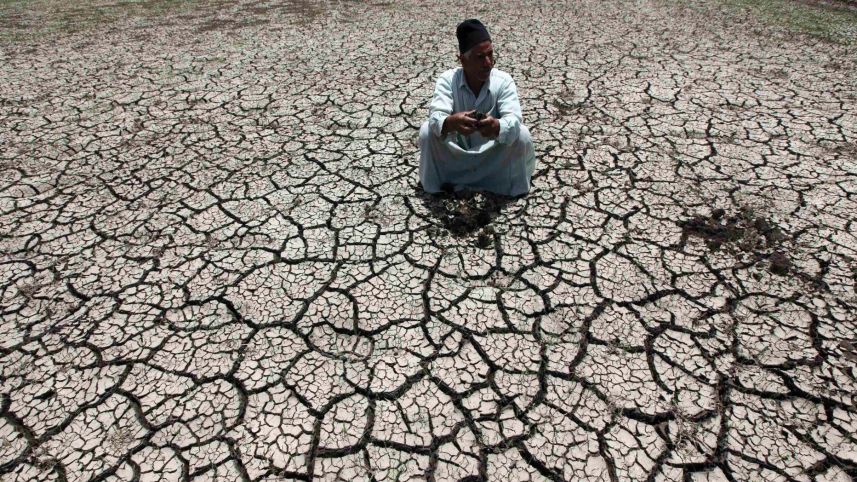The recent drought that began in 1998 in the eastern Mediterranean Levant region is probably the worst in 900 years, according to a new NASA report.
Scientists studied tree rings in the area, which includes Cyprus, Israel, Jordan, Lebanon, Syria, and Turkey, in order to reconstruct its drought history.
“The magnitude and significance of human climate change requires us to really understand the full range of natural climate variability,” said Ben Cook, lead author and climate scientist at NASA’s Goddard Institute for Space Studies and the Lamont Doherty Earth Observatory at New York’s Columbia University.
The recent drought in the Levant, from 1998 to 2012, is not only longer than usual but also about 50 percent drier than the driest period in the past 500 years, according to Cook, and 10 to 20 percent drier than the worst drought since 1100.
The results are to be published in the Journal of Geophysical Research-Atmospheres, a publication of the American Geophysical Union.
The researchers found that in most cases, when the eastern Mediterranean is experiencing a drought, so is Western Europe, said Kevin Anchukaitis, co-author of the study and climate scientist at the University of Arizona in Tucson.
“Both for modern society and certainly ancient civilizations, it means that if one region was suffering the consequences of the drought, those conditions are likely to exist throughout the Mediterranean basin,” he said.
“The Mediterranean is one of the areas that is unanimously projected [in climate models] as going to dry in the future [due to man-made climate change],” said Yochanan Kushnir, a climate scientist at Lamont Doherty Earth Observatory, who was not involved in the research. “This paper shows that the behavior during this recent drought period is different than what we see in the rest of the record,” he said. The upshot is that the Levant region could already be feeling the effects of human-induced warming of the planet, NASA reported.
[Source: Haaretz]





 WhatsApp us
WhatsApp us 

